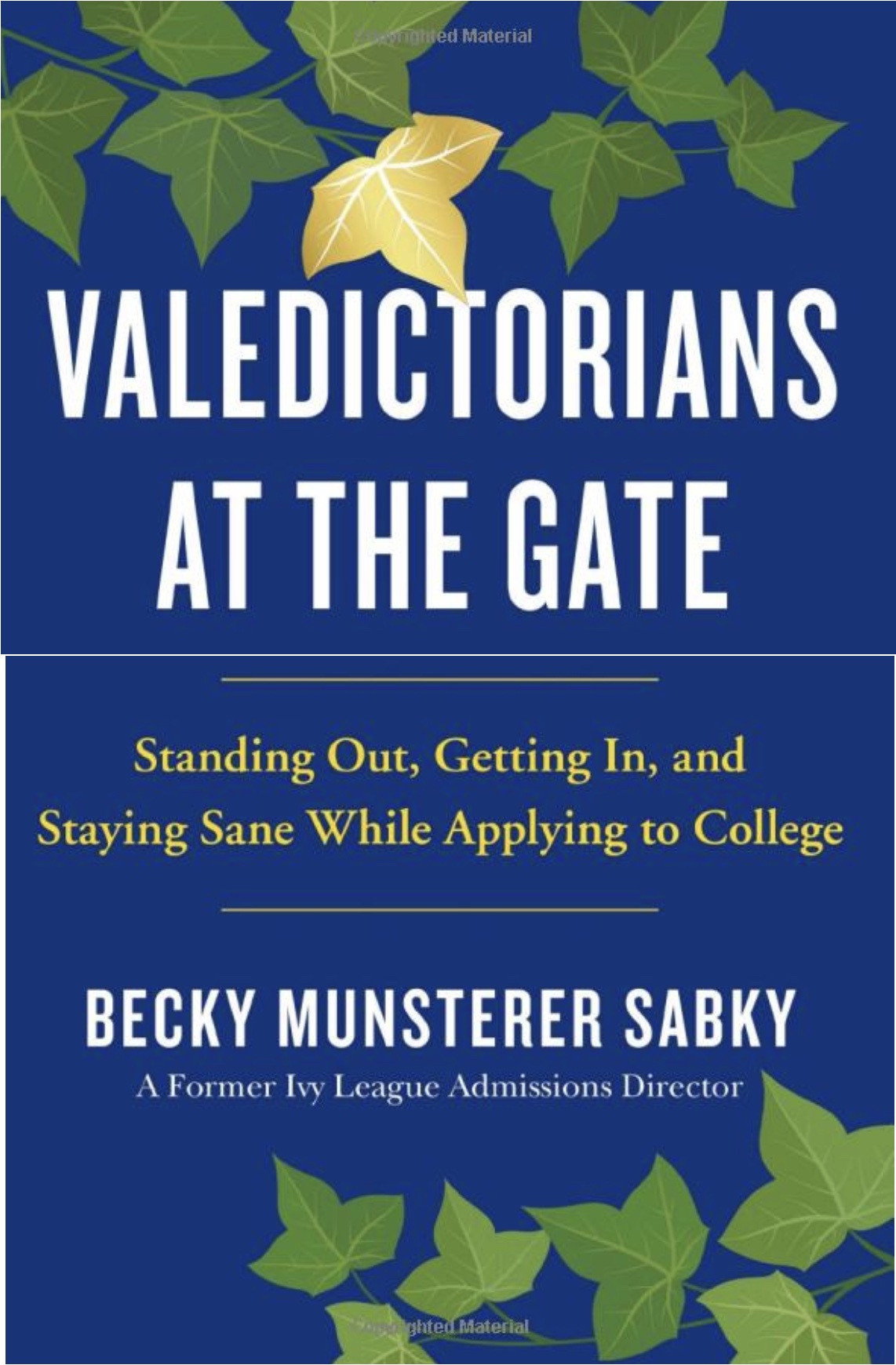
Valedictorians at the Gate: Standing Out, Getting In, and Staying Sane While Applying to College by Becky Munsterer Sabky is a must-read for high school students and their parents. It takes you behind the scenes of the crazy process of college admissions as it explains the value of character, being thorough, and staying curious. I’ve summarized over 200 books since I started in 2009, and I can’t say I have enjoyed any of them more than this. Congratulations, Becky, and thanks.
Preface
- Becky’s experience includes two years in the Saint Lawrence admissions office, followed by thirteen at Dartmouth, which is one of the so-called elite Ivy League schools. She was crushed when Dartmouth rejected her but had many valuable experiences at Colby College, her alma mater. She even picked up a master’s degree from Dartmouth.
- All this gives her sufficient expertise to write this advice book about applying, not competing, to college. This book will help students value open windows rather than obsessing about closed doors. If you are looking for financial aid advice, don’t look here. This is all about finding the college that is right for you, creating your best application, and getting off to a good start.
1. The Big Picture
- College admissions is a business that first does what is good for the college. Students must first have sufficient academic skills to make the grade, but they need something more that makes them stand out at selective schools. Diversity is a big deal today, and there is nothing you can do to change your race, ethnicity, or poverty status. (Doug: you can at least pretend to change your gender, so being trans is probably a plus at many schools). Even if you are a white guy, you can appear somewhat diverse if you have special skills or qualities.
- If you have family members who attended college, consider applying where they went as a legacy. Your chances of admission go way up. It may also help if you are from somewhere in the US where other students aren’t applying; think North Dakota. If your parents are wealthy, be sure to contact the development office. (Doug: From my experience writing student recommendations, I know that the quality of teacher and counselor recommendations is a big deal. I once got a letter from Princeton telling me how my letter led to a student’s acceptance. In my case, I wrote my daughter’s recommendation and emailed it to her counselor, who put his name on it and sent it in.)
The College Search
2. First Steps
- The big idea is to make the most of high school. When you are a senior, it’s too late to develop good writing skills that will make college applications much easier. Take challenging courses, but don’t go overboard. You need to have time to do other things. It doesn’t matter if you pick up a paintbrush, an oar, or a trumpet as long as you do something beyond your high school coursework.
- Familiarize yourself with the resources in the guidance office during your freshman year. These resources are often underutilized. Familiarize yourself with the entire course offerings at your school and note which ones have prerequisites. At some point, find out if the colleges you are interested in accept the common application.
3. Creating the Right College List
- Apply to as many schools as you can reasonably visit. Check college test scores/admissions data to help gauge your probability of being accepted. Ideally, you will only apply to schools that you feel excited about, so do your homework and get excited.
- Many colleges offer price calculators online that will allow you to estimate out-of-pocket expenses. Ask your counselors, teachers, and trusted family and friends for advice. (Doug: I advise knowing what you want to major in first. If you decide after year one, you may be unable to take all the courses you need to finish in four years. Most of the people I know who switched majors took an extra year.
DrDougGreen.com If you like the summary, buy the book





